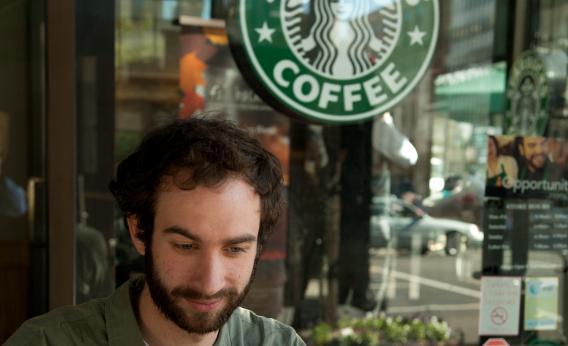The fact that Starbucks is poised to raise coffee prices in most American markets is not all that interesting, but the underlying cause is. Basically last year Starbucks saw that coffee prices were on the rise, so they made an advance agreement to purchase coffee for the fiscal year that started in October to lock in the then-prevailing prices. Unfortunately for them, the coffee market fell soon after that leaving Starbucks locked in to paying higher prices than what you can get on the spot market.
This, incidentally, illustrates the kind of thing that financial markets are supposed to be around for. Large classes of traders are often dismissed as “mere speculators” but that’s kind of the point. The business of running a large chain of coffee houses is, necessarily, in part the business of speculating on the price of coffee beans. But it doesn’t really make sense for the Starbucks management team to be speculating on coffee prices. To run Starbucks successfully you need a lot of management skills related to operating and marketing a large chain of coffee houses. The people who are good at that may turn out to be pretty bad bean speculators, as we see here. A reasonable alternative strategy would be to just run the business as if the price of coffee was destined to be flat, and then place counterveiling speculative bets. The point of those bets, however, isn’t to speculate it’s precisely to try to eliminate the need to speculate. To offload the speculative aspects of the business so that the management team can focus on franchising, marketing, product development, and all that other stuff. But in order to offload the speculative aspects you do need some speculators out there to take the other side of bets. Their own speculative activities can look “useless” but their function is to help other people get out of the useless speculative game. It’s fundamentally similar to how currency speculators can help cheesemongers.
